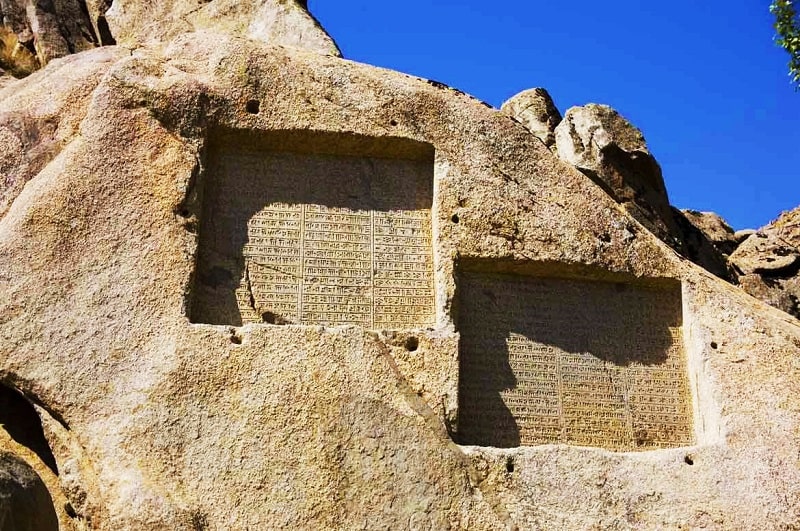Introduction to Ganjnameh
Ganjnameh inscription is located 5 kilometers west of Hamadan city at the end of Abbasabad valley. The reason why these stone inscriptions are called Ganjnameh is the presence of valuable words and advice that are hidden in the heart of the words. It is located in Sarsabez Abbasabad.
Ganjnameh, inscriptions in memory of the Achaemenid kings with two tablets, one attributed to Darius the Great and the other attributed to Xerxes. These inscriptions are to the east and their writings can be read from the very first minutes of sunrise. Tablets with similar content written in three languages: ancient Persian, Elamite, and Babylonian. The inscription on the left was engraved around 500 BC by Darius the Great and the right one by Xerxes.

The Inscriptions of the Treasury
The route on which the Ganjnameh inscriptions are located during the Achaemenid rule connected Hegmataneh (the summer capital of this kingdom) to Babylon and was considered as a busy road. It was also considered a sacred route because it ended in Babylon. Troops, kings, and merchants who had set out for western Persia passed through this place. This passage was called the royal road, which was very important. These points caused two inscriptions to be engraved here with command of two important Achaemenid kings, Darius I and later his son Xerxes. The purpose of the Achaemenid kings by leaving these inscriptions in Ganjnameh, was to remind passers-by to pray Ahuramazda, the glory and power of their ancestors, their thoughts and beliefs of the heart, and their greatness and greatness.
The text of Darius’ tablet is as follows in Ganjnameh: “Ahuramazda is the great God who created this land, who created the people, who created happiness for the people, who made Darius king, the only king among many kings and the foreign ruler among many rulers.” I (am) Darius, the great king, the king of kings, the king of countries with many nations, the king of this vast distant vast land, the son of Vishtasb the Achaemenid.

